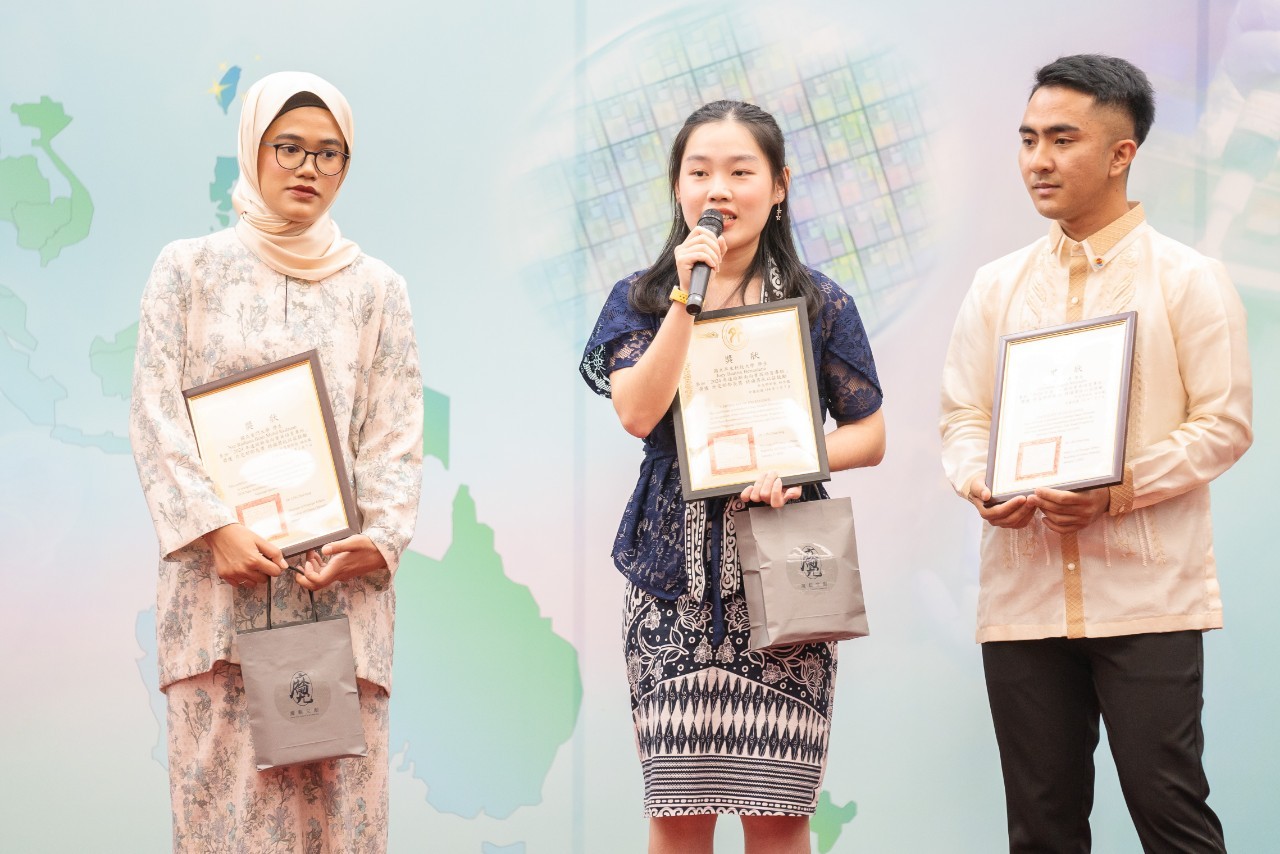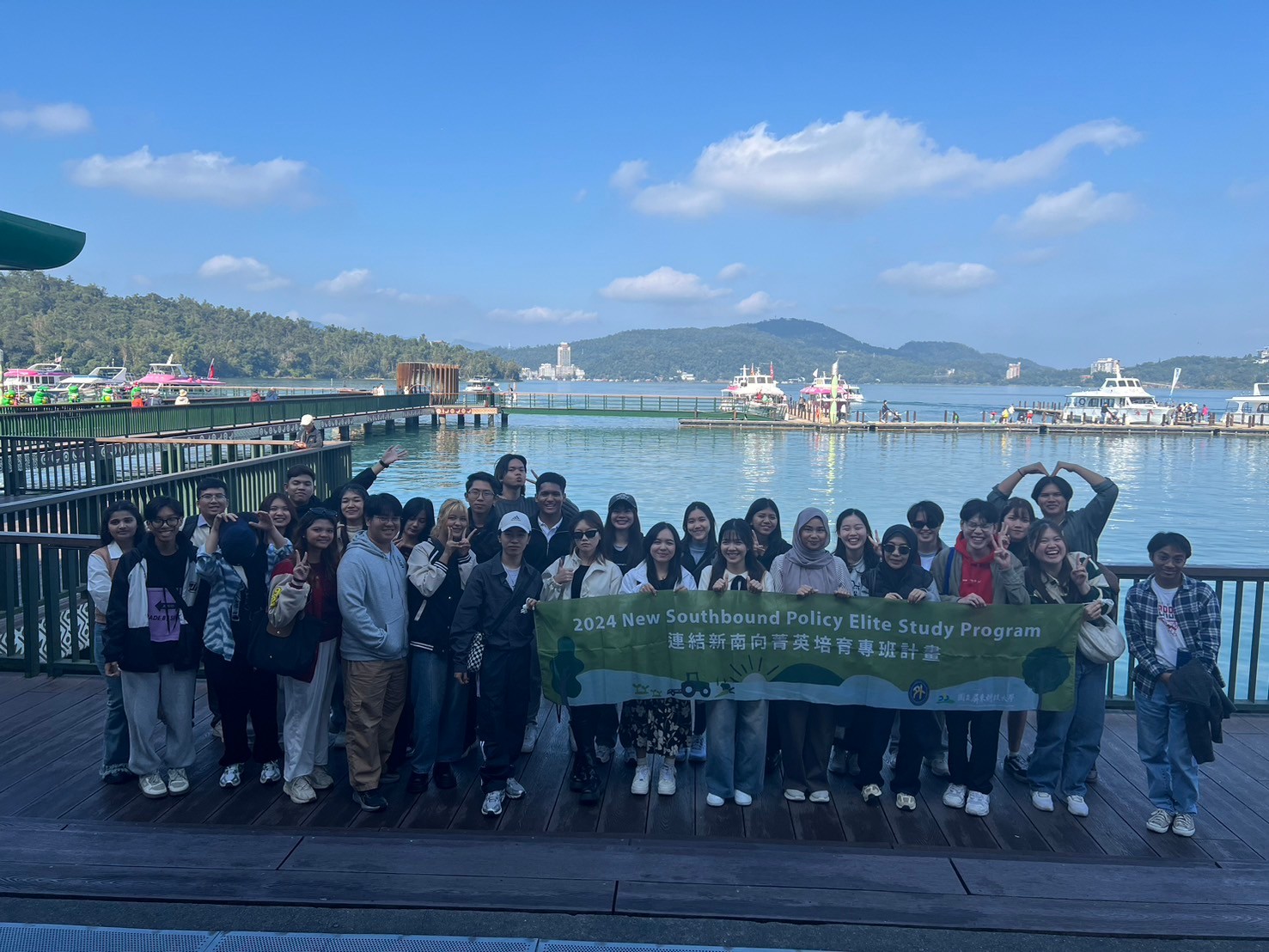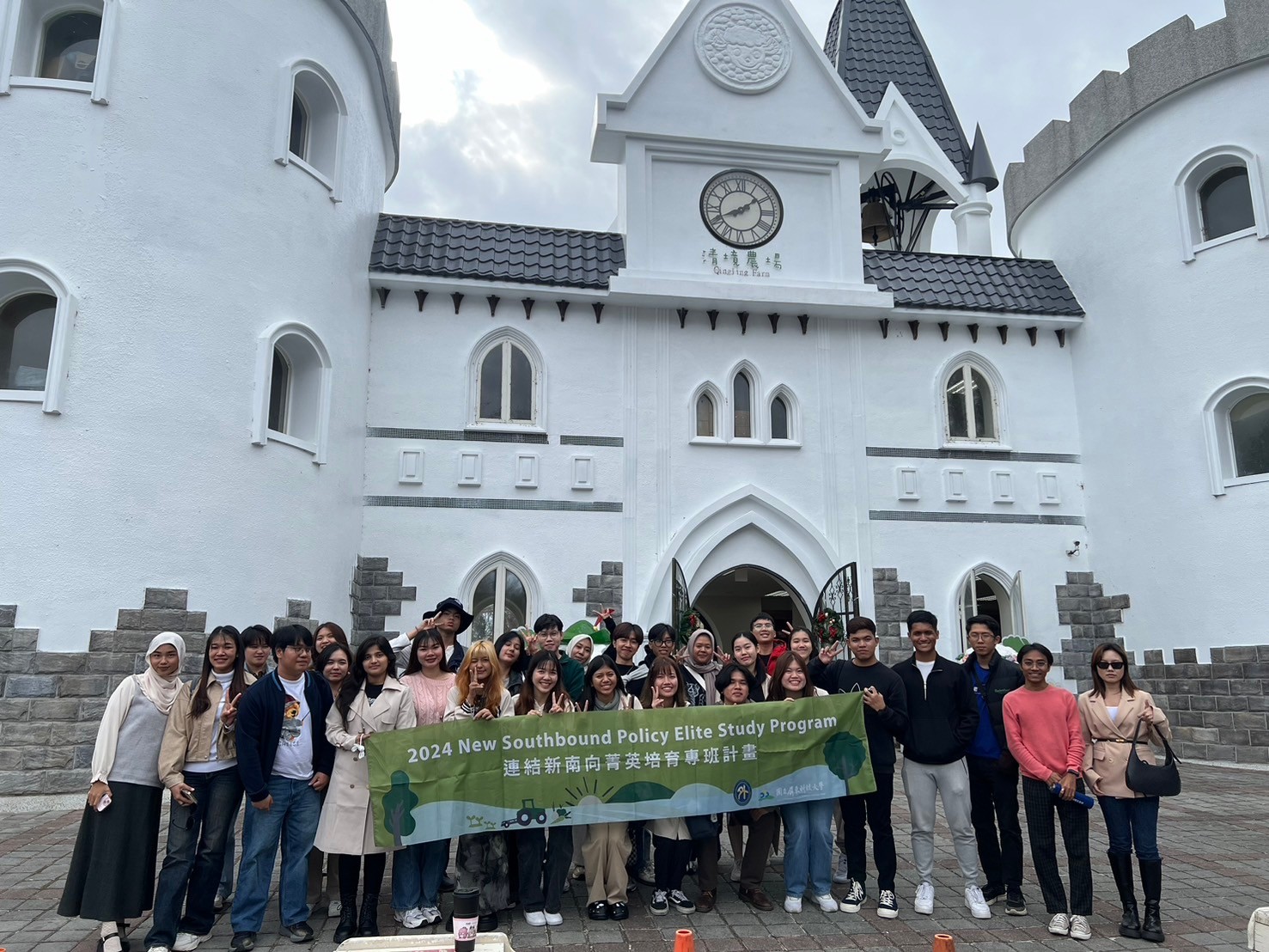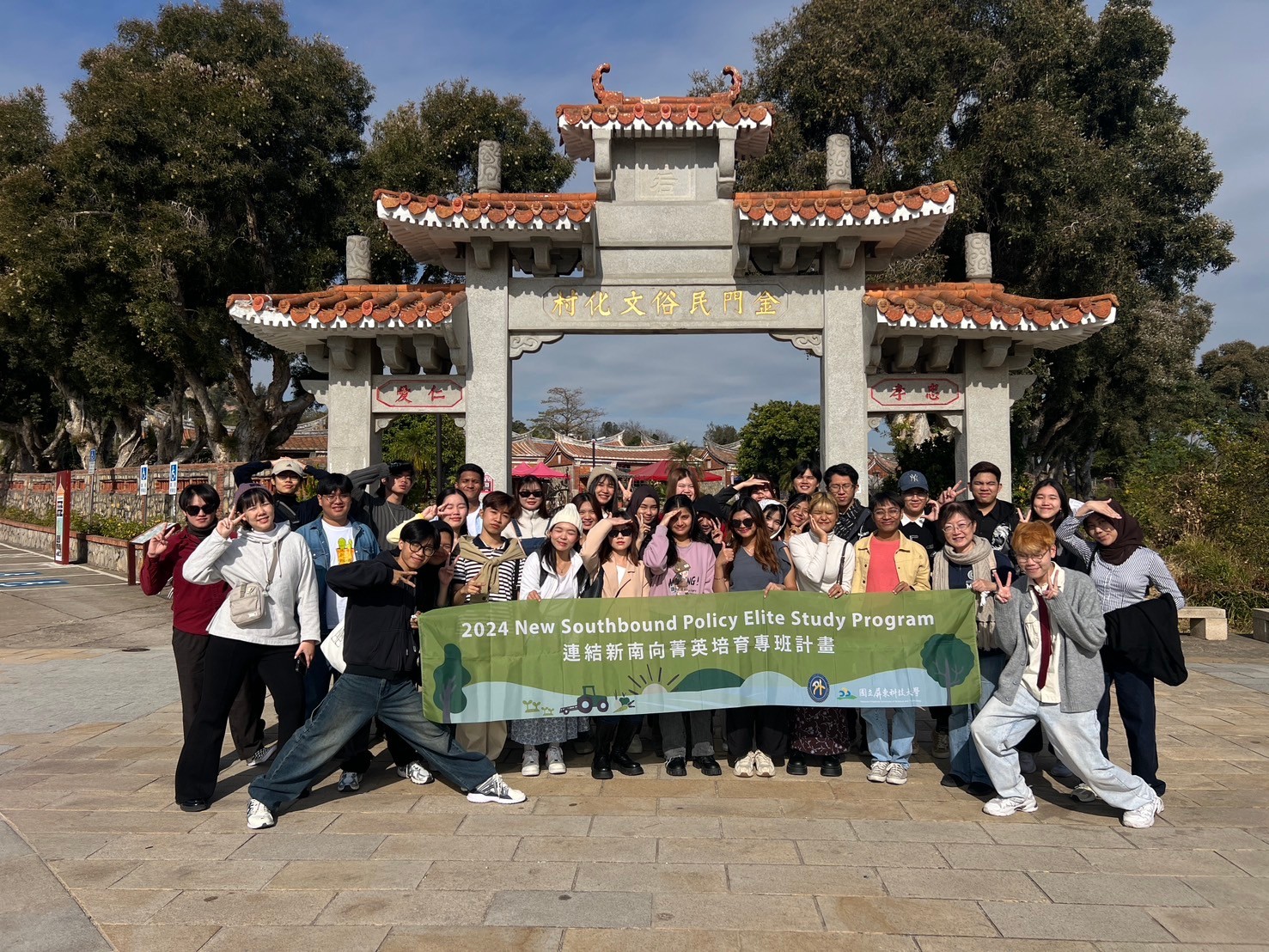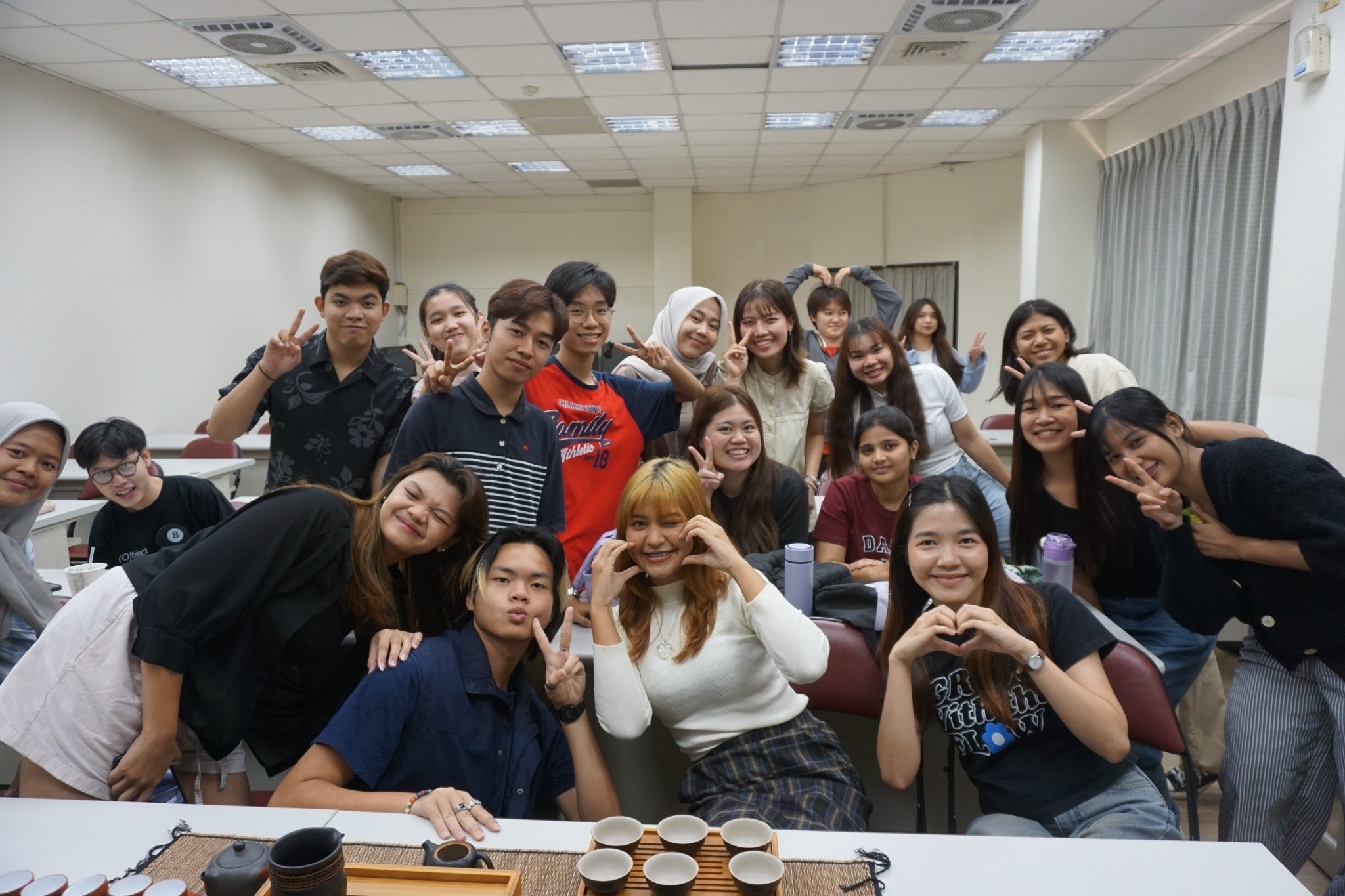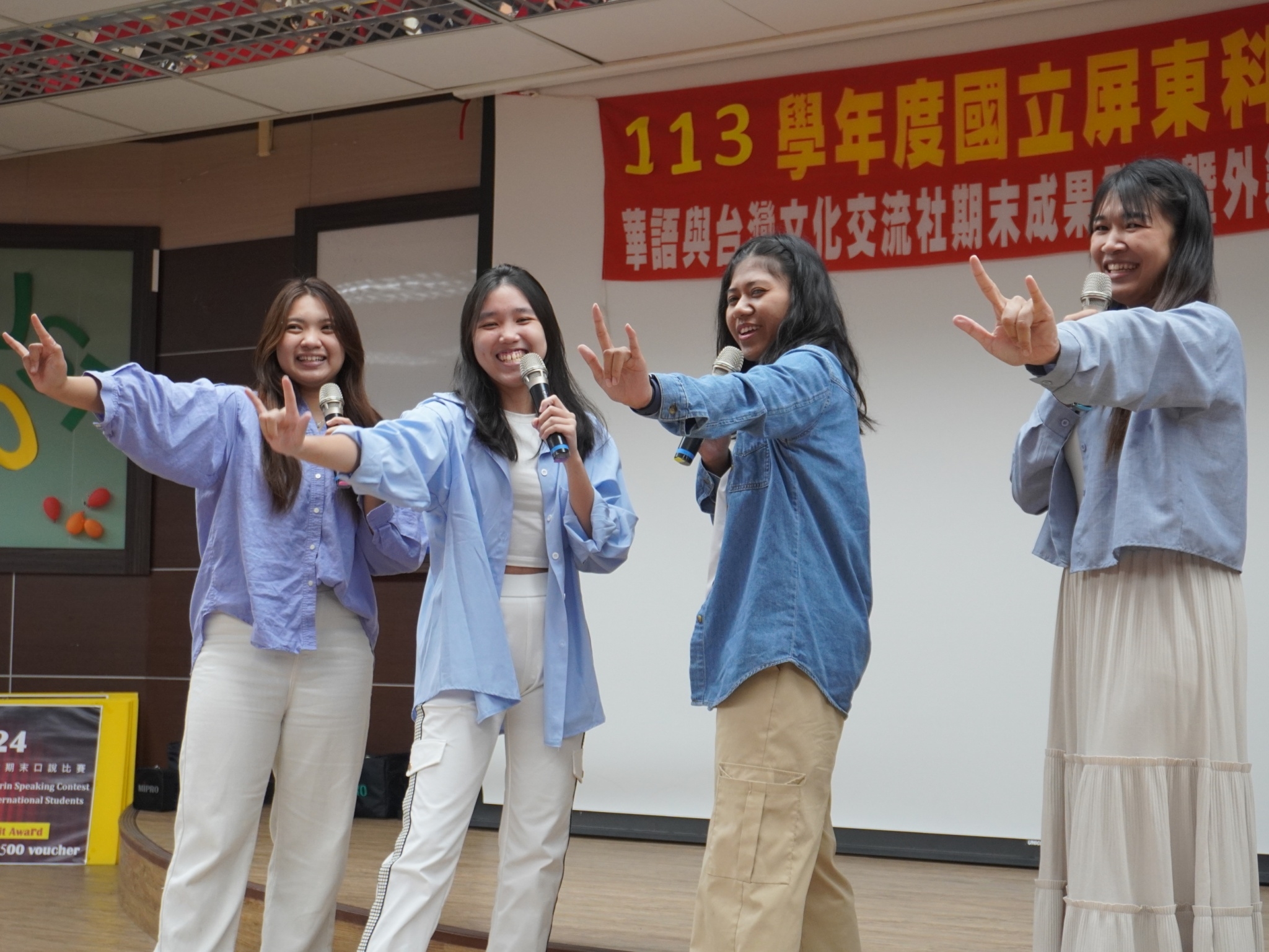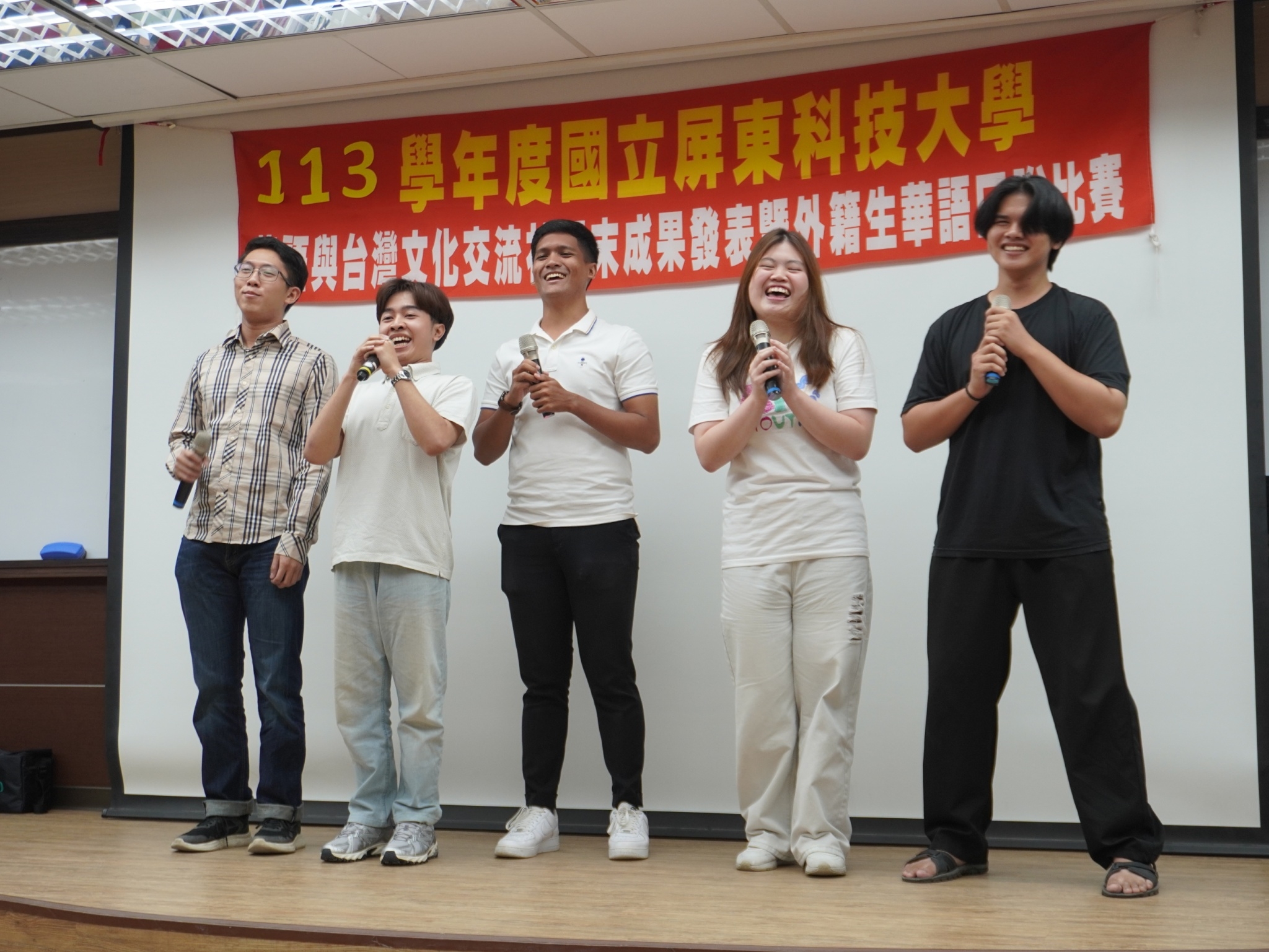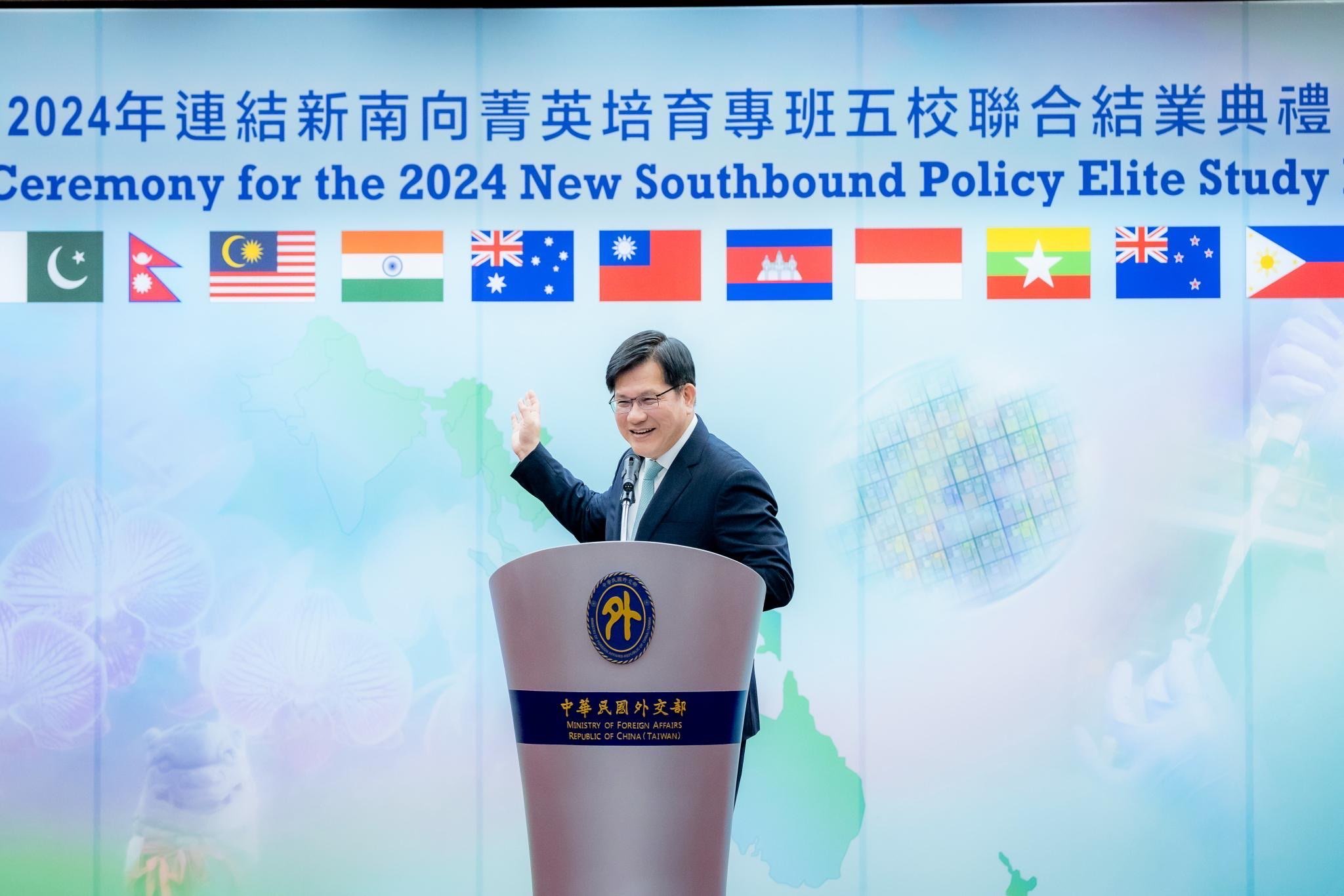National Pingtung University of Science and Technology (NPUST) has been deeply involved in activities in New Southbound Policy countries for over half a century now, and has earned itself an international reputation for the technology development and talent training achievements it has made in the field agriculture. On account of its relevant capabilities, the Taiwan Ministry of Education has once again commissioned NPUST to host the “New Southbound Policy Elite Study Program”, with the most recent installment held in the 2024 fall semester. Following the successful completion of the program, a graduation ceremony was held at 10 a.m. on January 7, 2025 at the Ministry of Foreign Affairs building in Taipei. NPUST’s Dean of International Affairs, Vincent Ru Chu Shih, led the participating members from NPUST up north to take part in the ceremony along with representatives from the four other participating schools, namely Taipei Medical University, National Quemoy University, National Taipei University of Technology, National Chung Hsing University. A total of 104 students from 12 New Southbound target countries were in attendance together with members of the representatives’ offices of Vietnam, New Zealand, India, Thailand, Indonesia and Malaysia.
In his speech, Taiwanese Foreign Minister Lin Chia-Lung stated that since the Ministry of Foreign Affairs first launched the special program with the cooperation of top domestic universities in 2022, it has trained a total of 221 young people from 12 New Southbound target countries, including Australia, Cambodia, India, Indonesia, Malaysia, Myanmar, Nepal, New Zealand, Pakistan, the Philippines, Thailand, and Vietnam. The special program was successfully expanded in 2024 thanks to the five schools which provided excellent assistance through careful reception and planning. Not only did the schools demonstrate Taiwan’s expertise in public health and medical care, semiconductor technology, regional and cross-strait research, climate change governance, sustainable agriculture and food security, but they also provided the students with an in-depth experience of Taiwanese culture. Minister Lin thanked the New Southbound countries’ representatives in Taiwan for supporting the youth exchanges, and expressed his pleasure to see that the five professional fields covered by the schools all lined with the Taiwan’s “integrated diplomacy” approach.
Joey Beatrix Bernadette, an outstanding student in the NPUST program was presented with the “Minister’s Award” by Minister Lin Chia-Lung. During the acceptance she said, “I am very grateful for this Ministry of Foreign Affairs project and to National Pingtung University of Science and Technology for taking good care of me. The program has allowed me to acquire a lot of knowledge and see a new face of the world. During this precious time, I met humble and kind friends and teachers, and experienced wonderful new experiences in Taiwan with my classmates. Although we come from different backgrounds and have no blood relationship, these brothers and sisters have become an important part of my life. The journey has left many deep impressions on us and will become an unforgettable part of the history in our lives! I hope that more people will be interested in studying in Taiwan, which is so filled with opportunities”.
A total of 30 students enrolled in the 2024 New Southbound Policy Elite Study Program at NPUST, coming from 20 schools in six countries, including Thailand, Indonesia, Vietnam, Malaysia, Cambodia, and India. In addition to learning Chinese together, the participating students had the opportunity to study animal science, food science, biotechnology, animal vaccines, plant medicine, and agribusiness, depending on their interests. The NPUST Office of International Affairs also thoughtfully arranged cultural visits once a month to allow students to experience the local customs and food cultures of various places. In this way, in addition to providing students with a comprehensive professional learning experience, they also had the chance to enrich their life experience in Taiwan.



